Abstract
Wartenberg developed his pendulum test as a simple but precise test to assist examination of muscle tone in patients with Parkinson's disease. It has recently been reintroduced, and computerised, to evaluate spasticity in young hemiplegics. The results are reported on the highly successful application of this computerised test to large numbers of healthy, elderly subjects. The data have provided normal values for a number of measurements. Analysis of variance has shown that differences between individual subjects account for a major part of the total variabilities seen in all measurements taken. Factors such as position, leg and time trend contribute very little to total variation and, for practical purposes, can be ignored.
Full text
PDF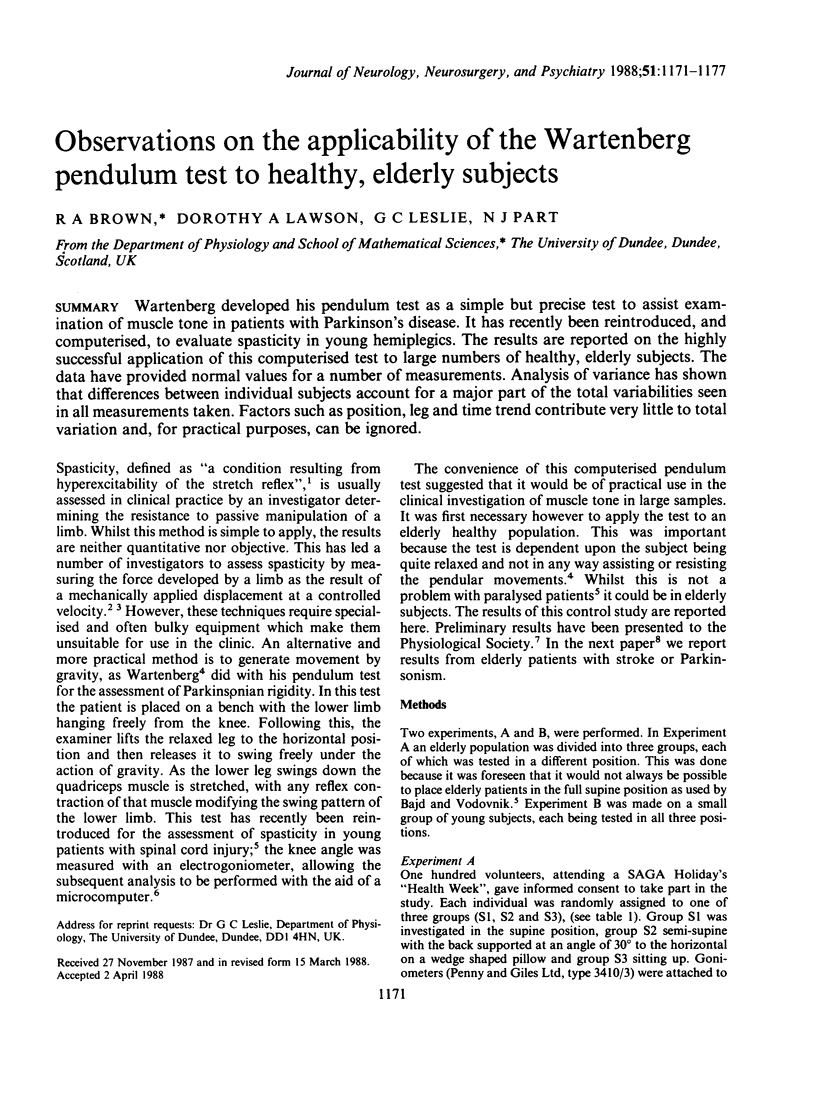
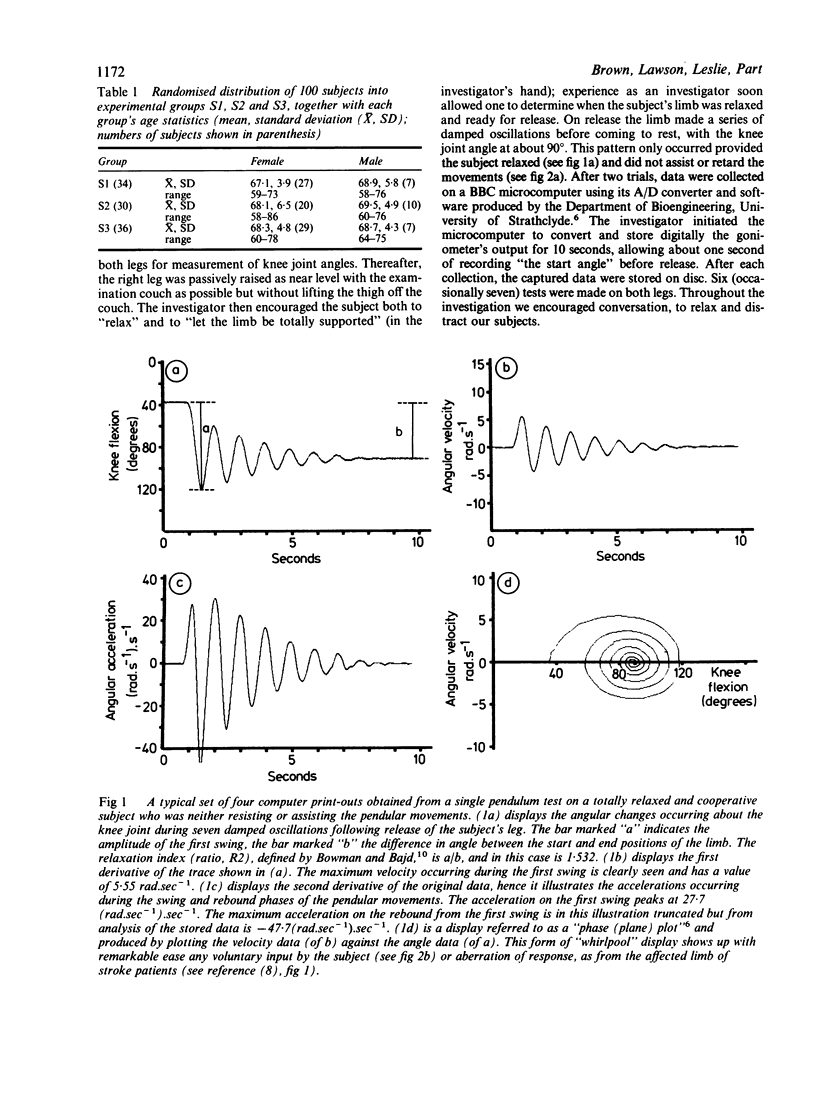
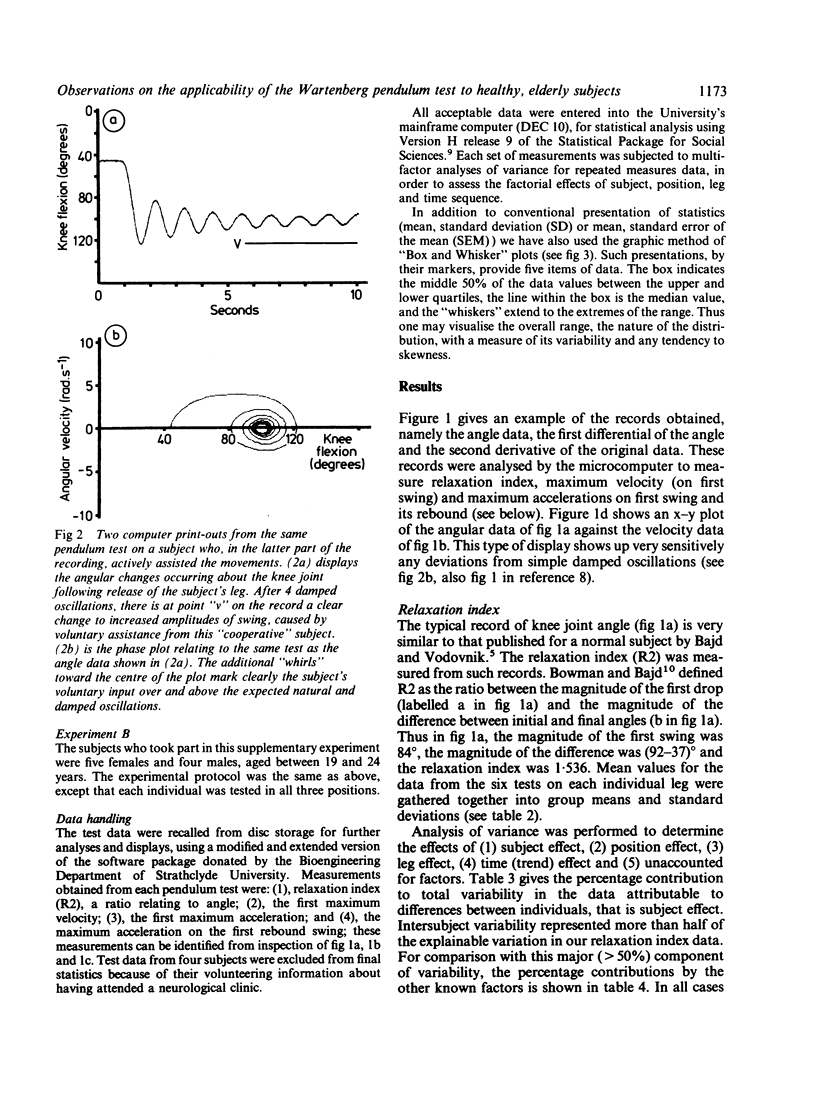
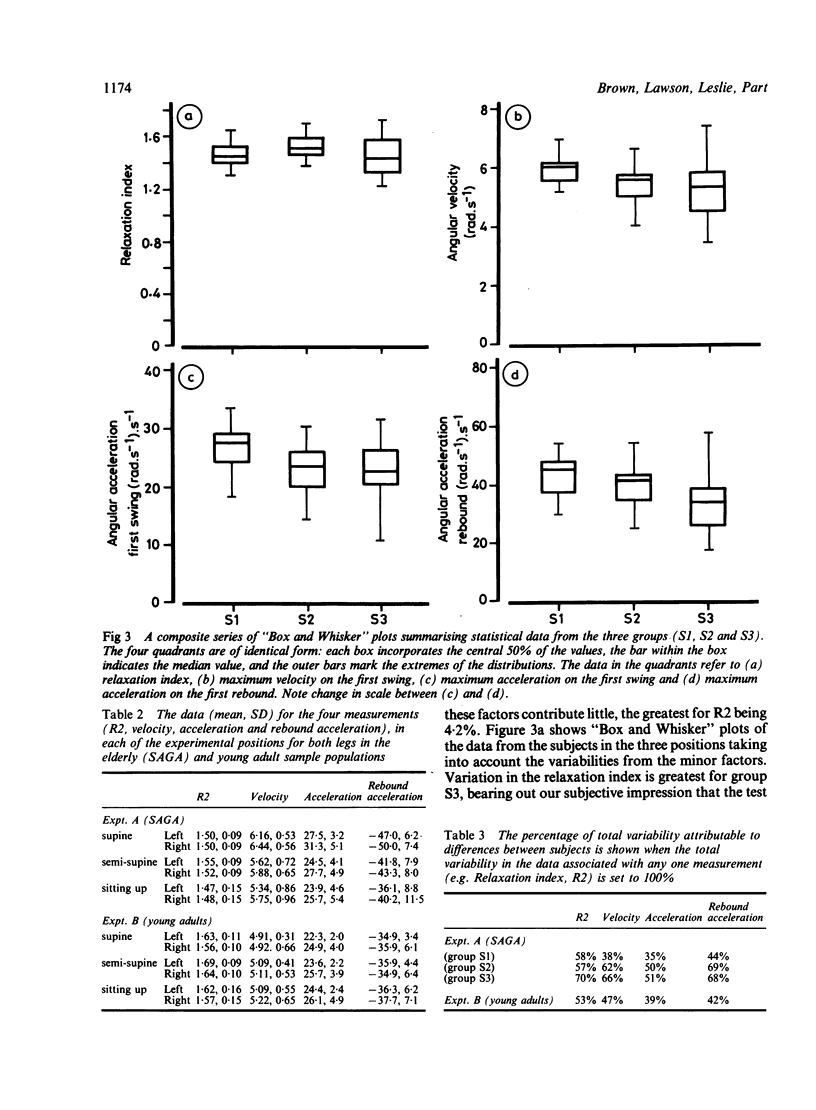
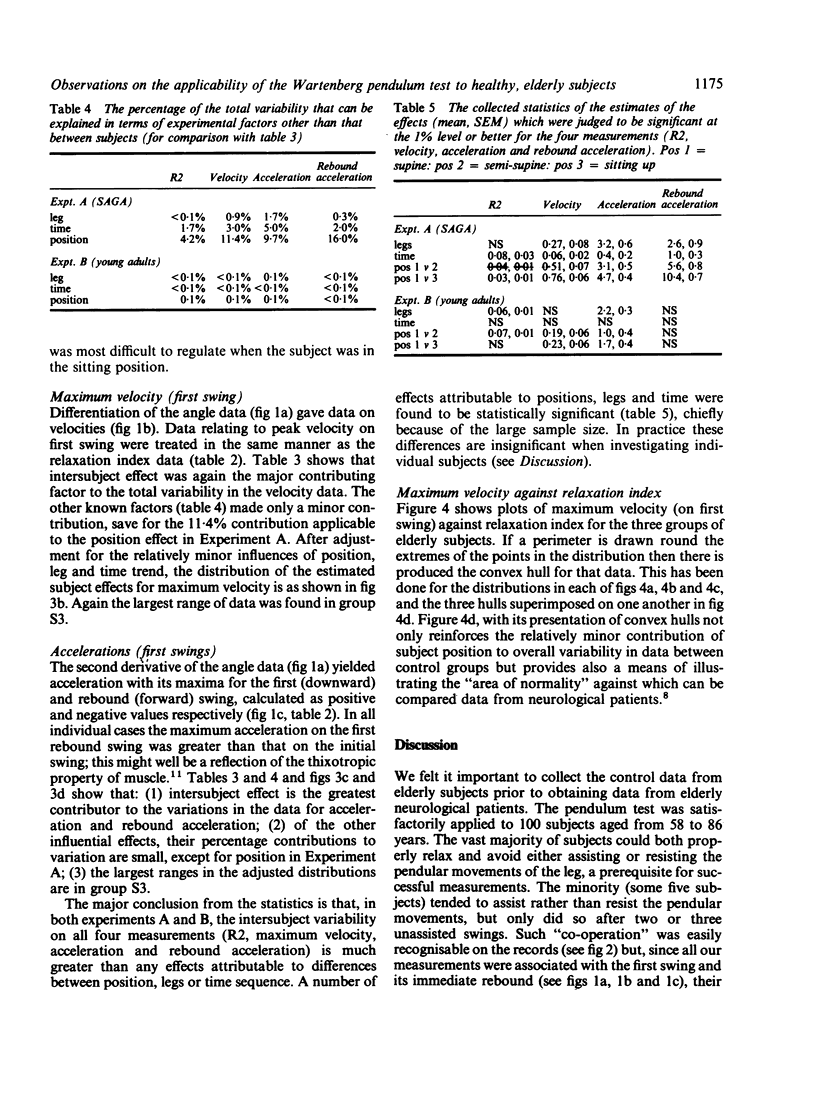
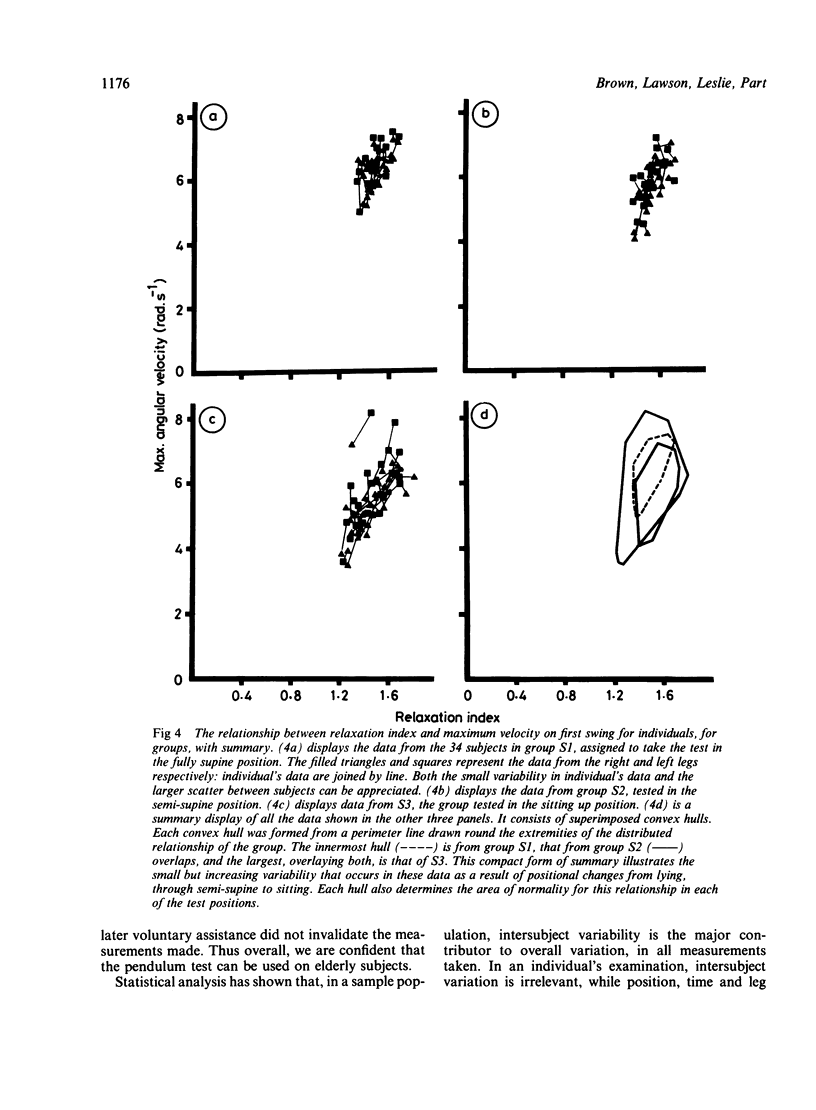
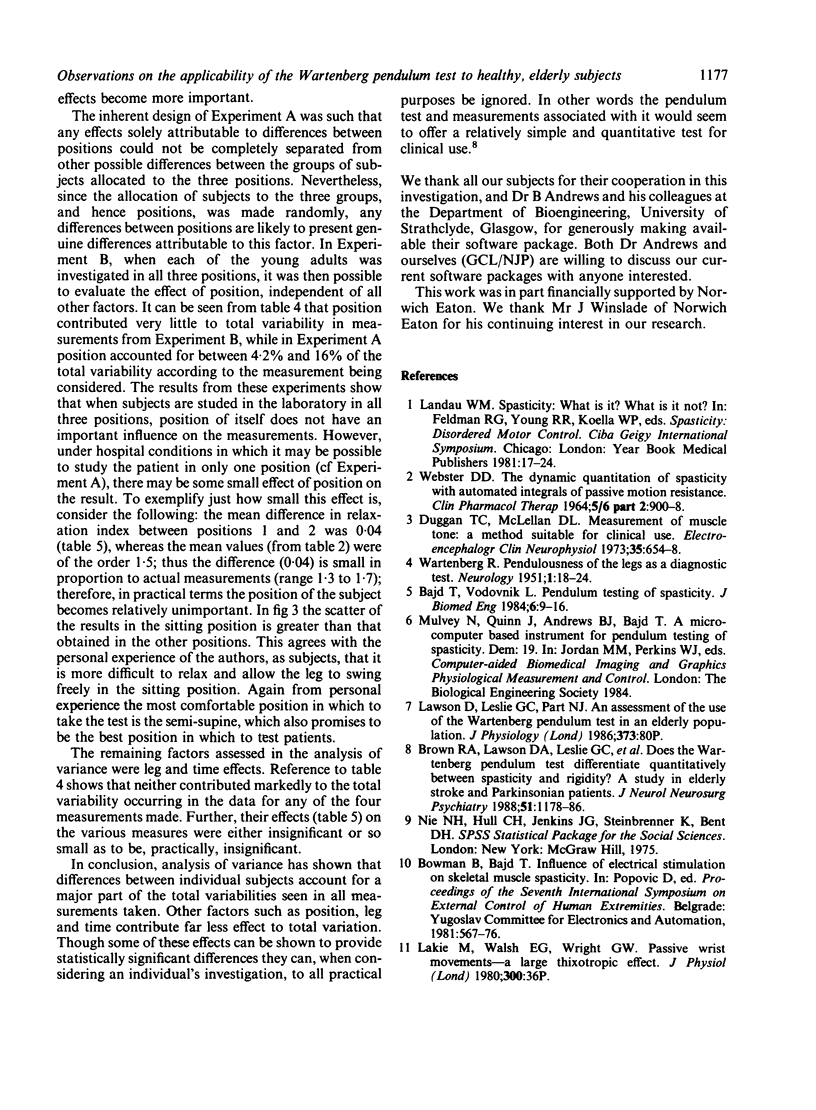
Selected References
These references are in PubMed. This may not be the complete list of references from this article.
- Bajd T., Vodovnik L. Pendulum testing of spasticity. J Biomed Eng. 1984 Jan;6(1):9–16. doi: 10.1016/0141-5425(84)90003-7. [DOI] [PubMed] [Google Scholar]
- Brown R. A., Lawson D. A., Leslie G. C., MacArthur A., MacLennan W. J., McMurdo M. E., Mutch W. J., Part N. J. Does the Wartenberg pendulum test differentiate quantitatively between spasticity and rigidity? A study in elderly stroke and Parkinsonian patients. J Neurol Neurosurg Psychiatry. 1988 Sep;51(9):1178–1186. doi: 10.1136/jnnp.51.9.1178. [DOI] [PMC free article] [PubMed] [Google Scholar]
- Duggan T. C., McLellan D. L. Technical contribution. Measurement of muscle tone: a method suitable for clinical use. Electroencephalogr Clin Neurophysiol. 1973 Dec;35(6):654–658. doi: 10.1016/0013-4694(73)90220-4. [DOI] [PubMed] [Google Scholar]
- WARTENBERG R. Pendulousness of the legs as a diagnostic test. Neurology. 1951 Jan-Feb;1(1):18–24. doi: 10.1212/wnl.1.1.18. [DOI] [PubMed] [Google Scholar]


